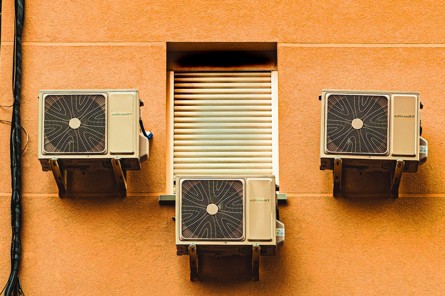In most cases, the common HVAC problems result from the lack of maintenance. For example, failure to clean the air ducts can cause blockages and malfunctioning systems. The good news is that these problems have solutions.
Some HVAC problems you will experience are filthy filters, uneven room temperatures, and a malfunctioning thermostat. Failure to repair these problems could lead to worse conditions like noise in the furnace, which could be due to the breakdown of some mechanical parts.
If you notice any unusual noise or behavior with your HVAC, consider calling a professional for an inspection. Treating the problem immediately also saves your system from complete breakdown, which could lead to a whole HVAC replacement.
The Common HVAC Issues
Although homeowners buy durable HVAC systems from reputable companies, these systems can still suffer various problems. Some problems are due to the machine’s old age, poor maintenance, or accidents like broken mechanical parts.
Some common problems you are likely to experience with your heating and cooling system are;
1. Poor Maintenance
Homeowners pay less attention to their HVAC systems leading to small and big problems. Failure to schedule inspections and maintenance means you won’t see and treat the tiny problems like a broken or lost part that needs fixing, which can also lead to bigger HVAC issues down the line.
Leaving your machine to run with these problems causes more dangers. For example, the loose part could break and stop functioning entirely. Additionally, if an essential part of the system stops functioning, it could lead to a complete shutdown of the HVAC.
Homeowners fail to schedule maintenance and inspection not to incur the expense of hiring a professional. Unfortunately, they fail to know that these tiny problems can worsen over time, requiring more expensive repairs or an entire HVAC replacement.
2. Dirty Filters
Dirty filters are primarily due to poor maintenance. Leaving your HVAC to run on the same filters throughout the year without cleaning them can lead to blockages and poor system functioning.
The dirty filters restrict airflow in the system and cause the fan motor to work harder. This leads to high energy consumption, hence a rise in energy bills. The dust in the air filters could also be blown back into the house, making the furniture and floors dusty.
3. Uneven Room Temperatures
If you notice lower temperatures in some rooms, the problem could be your HVAC. This is primarily due to blocked vents by dust and debris. The causes of blockages obstruct the distribution of the temperatures, making some rooms colder.
An old HVAC system could also be a major reason you have unbalanced room temperatures. These systems are less efficient because of their weak mechanical parts, making it harder to distribute warm temperatures in all rooms.
4. Broken Thermostat
Without a properly working thermostat, your HVAC won’t know how cool or warm the room is. It could lead to a continuous flow of the coolant into the radiator, which causes the engine to become cold.
Overcooling the engines are less efficient and use a lot of energy. Therefore, a broken thermostat will lead to high energy consumption and, worse enough, wear the engine parts. This can eventually cause expensive repairs.
5. Noise in the Furnace
Hearing unusual and weird noise from the HVAC system cause an alarm for most homeowners. In addition, noise in machines signifies a broken mechanical part that could require huge and expensive replacements.
Also, a noisy machine is scary because continuous usage could lead to a total breakdown. However, noises in the furnace are a common problem HVAC owners face. If there is anything unusual with how your system sounds, contact a professional immediately.
6. Leaking
Another major HVAC problem is leaking. HVACs produce condensation, but it is abnormal to have leaks. Clogs or a broken drain pipe are a significant reason your system is leaking. If you don’t know how to check the drainage pipes for leaks, contact a professional.
7. Ignition Problems
You don’t need a certificate to know that you have an HVAC ignition problem. If the system shuts off completely and won’t turn on again, it is a good sign you have ignition problems.
Another sign of a faulty HVAC ignitor is if the system blows cold air into the rooms. Also, check if there is a short cycle, which is signified by the system turning on and off repeatedly.
Troubleshooting HVAC Problems
Although these HVAC problems are common, it is scary to experience them. Luckily, there is a remedy for every problem to keep your system running. Once you notice a problem with your system, these tips will help you.
1. Clean the Vents and Filters and Schedule Maintenance
Most HVAC problems are due to poor maintenance. Homeowners take cleaning their windows and doors more seriously than they are with the systems. If you haven’t been scheduling professional maintenance for your system, start now.
You should also inspect the vents and ducts for dust and clean them. If there is dust and dirt blockage, replace these parts before they cause worse problems to your system. Clean vents and ducts ensure good airflow and proper functioning of the system.
2. Check and Repair the Drain Lines
The reason for the leakages is damaged drain lines. Some pipes break, causing the condensation to flow into the ground. Also, clogs in the drain pans cause water retention, which starts overflowing onto the floors.
Leaking drain pipes can cause mold on the walls and stuffy rooms. They also damage wooden floors and furniture. Once you notice water leaks, contact a professional to fix them.
3. Change the Batteries of Your Thermostat
Some HVACs run on batteries, so the ignition problems could be due to dead batteries. Swap them with new ones and test if the system works. Also, if the system is not running during summer or winter, it could be due to wrong programming.
Check your thermostat’s information and ensure it is up-to-date. Test the system with different temperatures to see if there are changes. Besides, reading the user’s manual will also help to determine the cause of the problem and solution.
Final Words
Knowing the common HVAC problems makes homeowners more alert with their machines. Once you notice any signs of malfunctioning, you can quickly find a solution. Ensure you also schedule maintenance to avoid serious breakdowns. Also check out our other articles like preventing your AC from freezing and why your AC is making a screeching noise.






